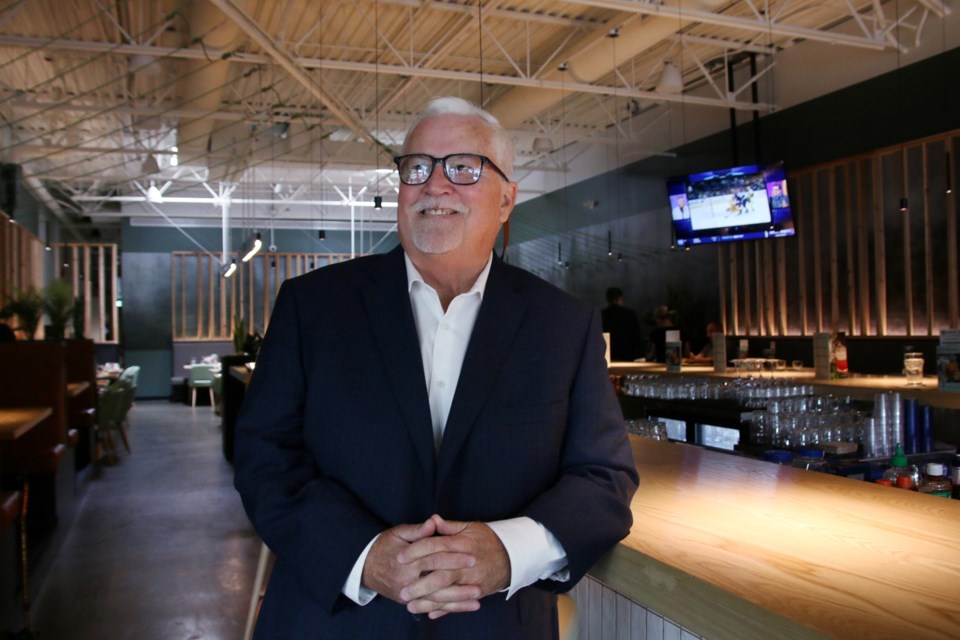Statistics Canada data confirms what B.C. restaurant owners and industry advocates have been saying for months: business is tough as customers have become focused on happy hour promotions and are otherwise trying to save money where they can.
Data this morning from the nation's number cruncher showed B.C. restaurants and drinking places saw sales rise a mere 2.67 per cent in October, compared with October 2023. That was the third lowest increase among provinces after Newfoundland's 1.36 per cent increase and Prince Edward Island's 1.05 per cent increase.
Canadawide, sales at restaurants and drinking places in October were up 4.11 per cent, compared with October 2023.
On a month-over-month basis, B.C. restaurants and drinking places in October saw sales decline in absolute terms: by 0.4 per cent. The only other provinces to see sales declines in October, compared with September, were Prince Edward Island and Nova Scotia. B.C.'s month-over-month decline in restaurant sales in October, therefore, was the largest decline in dollars among provinces.
B.C. earlier this year was also seeing the steepest restaurant sales drop among provinces.
"We have the 'happy hour' mentality right now in B.C.," BC Restaurant and Foodservices Association CEO Ian Tostenson told BIV this morning. "People are going out but they're going for the happy hour."
He said he has heard this from his association's members and seen it himself. He has gone to restaurants in the late afternoon and been impressed with how busy it is. The restaurant then empties soon after happy hour ends, he said.
Restaurant owners, he said, have told him the average dining receipt is down even if the number of visits is up slightly.
Romer’s principal Kelly Gordon in November told BIV that he has seen this trend.
His customers are also drinking less in general and fewer are staying late to have drinks after their meals, Romer said.
BIV has reported that the province's monopoly liquor distributor, the British Columbia Liquor Distribution Branch, has reported a decline in dollars spent on wholesales in each of the last four quarters, up to the end of September. This is despite inflation.
One silver lining for Metro Vancouver restaurant owners was the recent spurt in sales thanks to Taylor Swift playing three concerts in Vancouver. Those concerts drew a substantial number of out-of-town visitors who mostly ate at restaurants.
"We don't think the GST (Goods and Services Tax) holiday is going to be material whatsoever," Tostenson said of the current federal initiative to not require business owners to collect the five-per-cent tax on a selected range of products.
"I've spoken to [owners at] probably 20 restaurants, and they just, they roll their eyes."
Were the provincial government to also waive its provincial sales tax (PST), that would be an encouragement for people to eat out, he said.
The PST on alcohol at B.C. restaurants is 10 per cent.
The federal initiative is disproportionate across the country in that it provides a bigger tax break for consumers in Ontario, and Maritime provinces. Customers in Ontario are getting a 13 per cent break during the GST holiday because they have a 13-per-cent harmonized sales tax (HST) that is being waived.
That means no tax on wine, or beer that has less than seven-per-cent alcohol.
The HST in those provinces includes the five-per-cent GST and is bundled with various provincial sales taxes.
Ottawa has said that it will not compensate provinces that have the HST for lost revenue but some premiers, such as New Brunswick's Susan Holt, have said that they have a right to compensation.
Tostenson said he did not lobby the B.C. government to waive its PST on restaurant meals because the federal initiative came suddenly out of the blue at a time soon after B.C.'s October election.
"The B.C. government was getting itself reorganized with new ministers so it wasn't good timing," he said.




